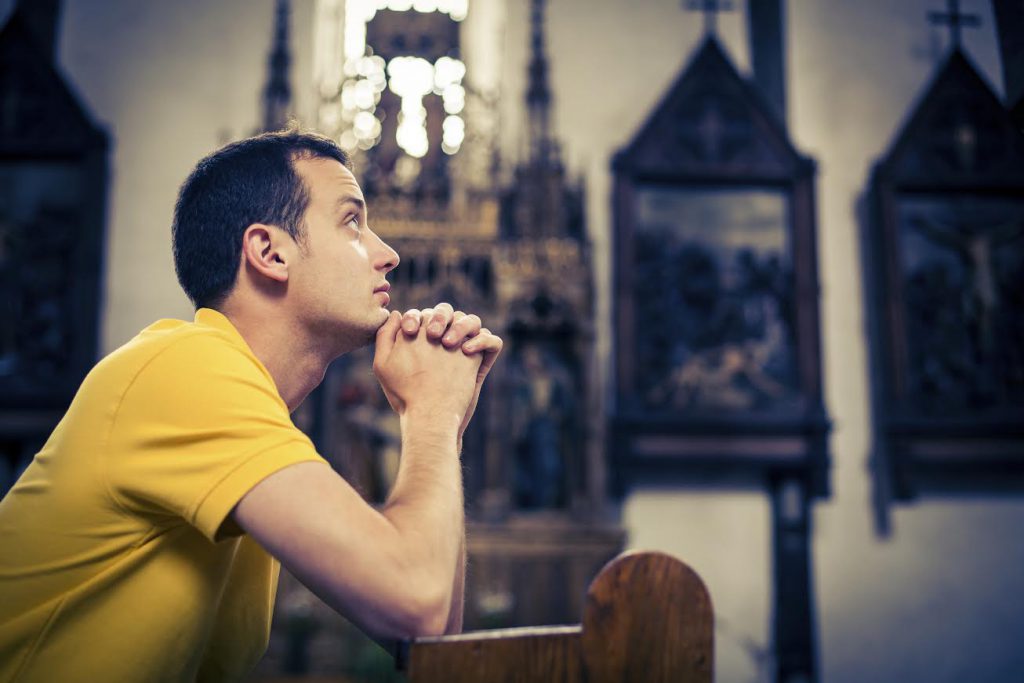
Written by Sarah Grathwohl
There is no one-size-fits-all solution for overcoming addiction.
Not only is it important to change your old habits, whether that be in your environment or behavior, it is also beneficial to change your outlook on life. This is where religion comes in. When times of self-doubt and negativity arise, religion has the ability to renew your faith and give hope for a better tomorrow. There are various programs that use religion and spirituality to encourage a change in mind, body and spirit. Addiction can create the overwhelming feeling of hopelessness, but by putting your trust in religion you can transform the rest of your life.
All 12-step programs can provide support to those looking to overcome addiction. These in-person meetings help those needing to recover learn the fundamental steps to live a life of sobriety. The steps encourage a person to admit their mistakes to God and help them make amends.
There are many programs that use the 12 steps during meetings. Support groups such as Alcoholics Anonymous, Cocaine Anonymous, Crystal Meth Anonymous, Marijuana Anonymous and Narcotics Anonymous help members recover from addiction. These specialized support groups unite people who are facing the same obstacles in recovery, while motivating them to continue to seek sobriety.
Two important elements in recovery are having a support system and becoming part of society; and these specialized support groups aid in both of these. Some may feel more comfortable speaking in public about their addiction if they are surrounded by others who understand what they are going through. In general, support groups provide a better sense of community and can really make a difference in one’s recovery.
In specialized support groups such as Narcotics Anonymous or Alcoholics Anonymous, there is a level of spirituality. Programs like these inspire participants to have confidence in a higher power, whether it is God or an energetic force. In these loving environments, attendees are asked to honestly evaluate their actions and admit they are powerless in overcoming addiction.
In addition to admitting they are powerless, participants ask God to remove their shortcomings in order to recover. While seeking guidance through meditation and prayer, these groups encourage individuals to have a spiritual awakening using the 12-step model. In various support groups you will be encouraged to grow as an individual and understand the spiritual principles as they apply to your everyday activities. If you put faith in a higher power, you will find guidance and be constantly reassured you can live a successful life in recovery.
Membership is open to anyone looking for a solution to their drug or alcohol addiction. In-person meetings continue to be the best way to progress toward recovery. There are no costs associated with attending these meetings but some programs take donations to pay for the location’s space.
You can overcome your addiction with the aid of religion. Once you have recognized a need for change and are ready to start, it’s important to not get discouraged. Remember, you can find your strength in faith. Have trust in the process and be confident that God has a plan for your life.
Sarah Grathwohl is a social media specialist and writer for DrugRehab.com. Since 2013 she has professionally managed Facebook and Twitter accounts. Sarah holds a bachelor’s degree in communications from the University of Central Florida.
References
12Step.org. (n.d.). The 12 Steps in a Generic Form. Retrieved from http://www.12step.org/the-12-steps/
Alcoholics Anonymous World Services, Inc. (n.d.). What is A.A.?. Retrieved from http://www.aa.org/pages/en_US/what-is-aa
